Art - Selected Works from TCC & Beyond
Art - Selected Works from TCC & Beyond

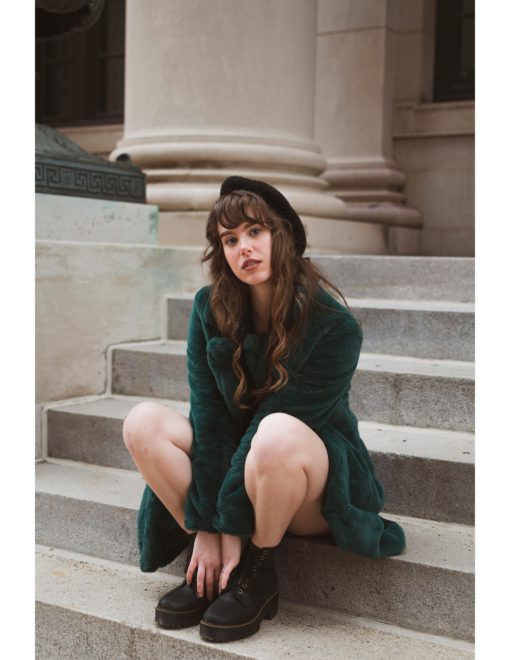
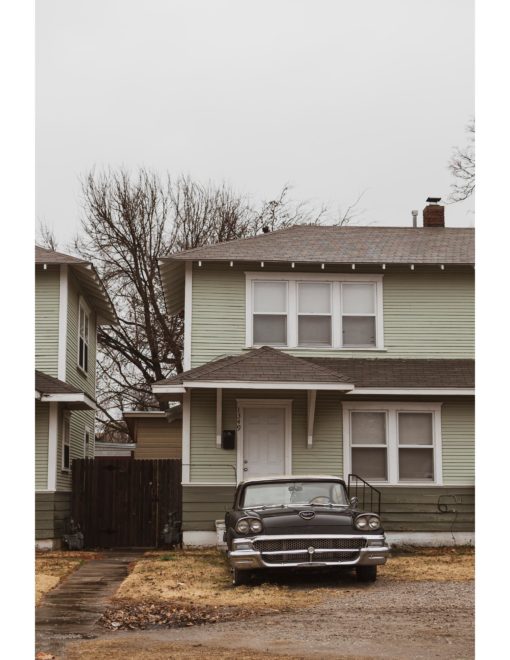
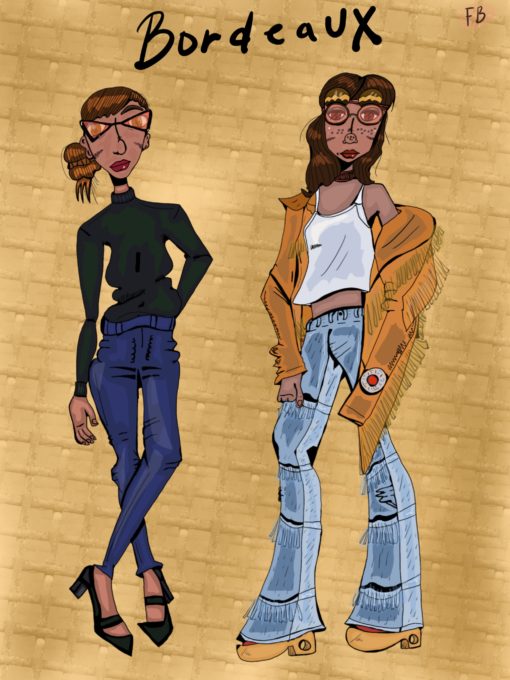
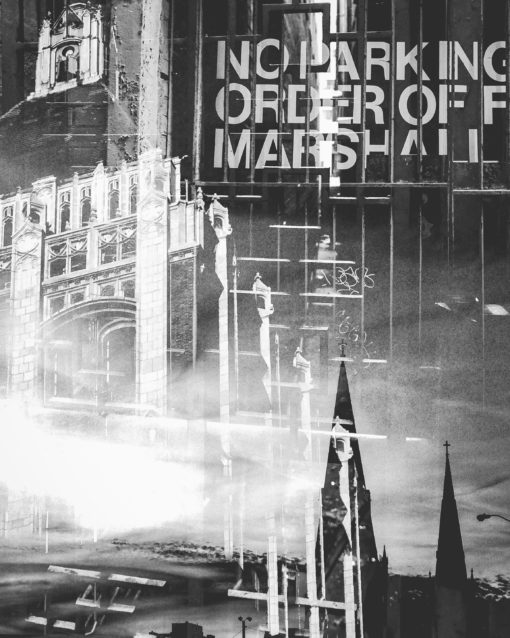
Art - Student Contest Winners
Art - Student Contest Winners
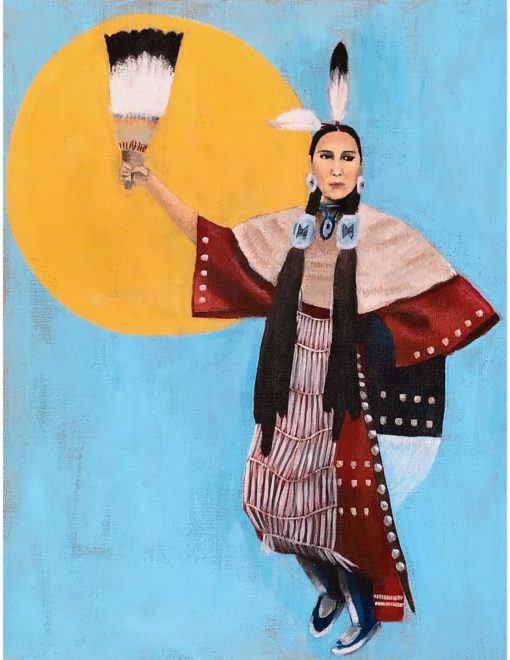
'Red Dress' by Janae Grass
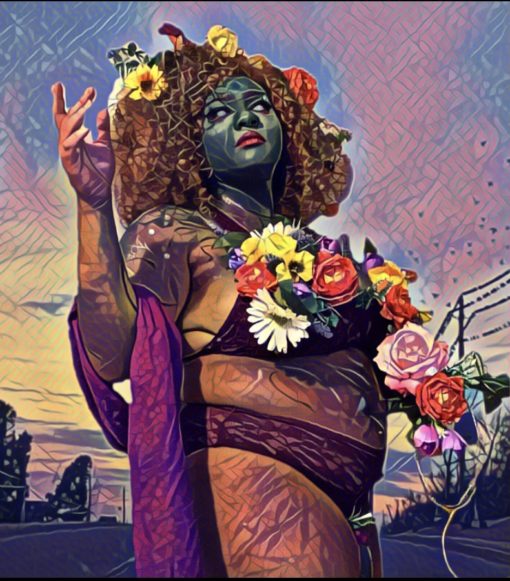
'Untitled' by Daija White
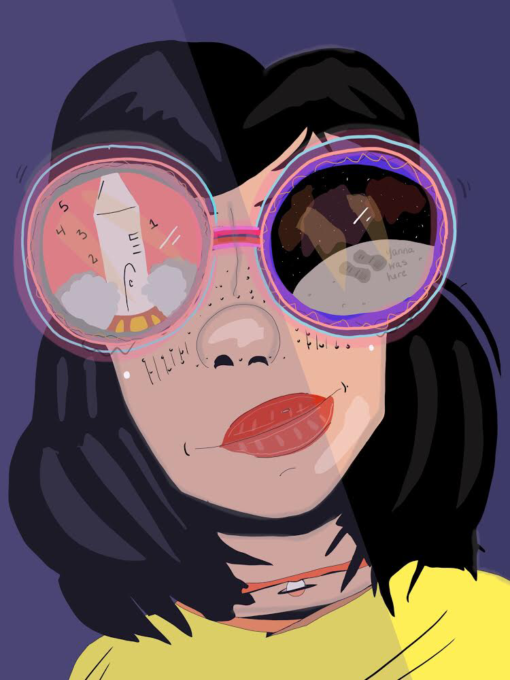
'Untitled' by Tyanna Reed
Girl Scouts of Many Colors
Girls Scouts of Many Colors
by Stephanie Sixkiller
a play in one act
GIRL SCOUTS OF MANY
COLORS Character List
MAGGIE ALBRIGHT: 16, Female. A typical do-gooder. She knows
nothing but how to follow the rules and often takes things way too seriously.
She is always in a tiff with Piper, who she’s gone to school with for as long
as she can remember. However, she doesn’t actively seek to get rid of Piper.
PIPER DONOVAN: 16, Female. What more could you want from an
alternative, sarcastic, angsty teen? She dresses like she has a constant storm
cloud looming over her, and she loves playing practical jokes on people to gain
attention. Everyone else pushes her away except Maggie.
CUSTOMER: Age and gender neutral. Just an average person
that unfortunately gets caught in the crossfire of Maggie and Piper’s antics.
AUDREY SERENA LOUISE URSULA TURNER-TAYMORE: Female. Around
the same age as Maggie and Piper. Although she has no dialogue, it’s obvious
from her appearance that she’s prissy, stuck up, and always gets her way. This
is different from Maggie because she works hard on everything she does, whereas
Audrey probably cheated her way to the top.
Synopsis
Maggie has the whole front entrance of the
Country Mart reserved for the day to sell cookies. What she doesn’t know is
Piper has been plotting to rain on Maggie’s parade.
(Lights up on a table set up for a girl scout cookie
display. There are rows of different types of cookies splayed out very
intricately, and there is a sign taped to the table reading “Help Maggie reach
her goal!” with a meter drawn next to it, filled almost full. Maggie enters,
dressed in a white button down, pleated skirt, knee high socks, keds (or
something similar). It would help to have the beret and sash but it isn’t
necessary. She is looking around her table, checking to make sure everything is
in perfect order. What she doesn’t see is Piper peaking around a curtain upstage,
spying on her.)
MAGGIE
(Sighs in
frustration) Cash box…
(She exits in a
hurry to get her cash box. Piper leans out further from the curtain to make
sure she’s gone before she enters fully. She is dressed in all dark colors
(looks similar to Wednesday Addams or Lydia Deets) and has a large tote bag
slung across her shoulder. She stalks over to Maggie’s table and begins to take
boxes of cookies and place them into her bag. Maggie enters holding a cash box.
She stops dead in her tracks when she sees Piper.)
MAGGIE
Piper Donavon! What in
the world are you doing?!
PIPER
What does it look
like?
MAGGIE
It sure looks like
you’re stealing my cookies!
PIPER
Yep! I’m starving.
MAGGIE
Well, I sure hope you
plan to pay for those cookies.
PIPER
I’m not sure that’s
how stealing works…
MAGGIE
Would you mind
putting them back, Piper?
PIPER
(Mocking) But
then you’ll win the contest… And where’s the fun in that?
MAGGIE
Just because you’re
bitter that you got disqualified for lacing your cookies with laxatives doesn’t
mean you can ruin my chances at winning the top prize.
PIPER
(Scornfully: Slowly
sets the stolen cookies back on the table. They should be blocked so Maggie
crosses in front of the table during Piper’s monologue so she has a chance to
tamper with Maggie’s cash box.) Oh drats. You’re so right. I’ll never even
have a chance to be as great as the perfect Maggie Albright! Ever since
kindergarten, I knew you were just miles above me. I would have never come
close to selling 500 boxes of precious cookies. What’s the point of even being
a girl scout anymore? I don’t serve a purpose as long as I breath the same air
as Margaret Albright.
MAGGIE
Are you done? You’re drawing customers away.
PIPER
Yep, all done. Sorry
for bothering you.
MAGGIE
Nothing I’m not used
to.
PIPER
Toodle-lo!
(Piper exits with a smirk on her face.
Maggie takes a beat to regain her composure before a possible customer enters
center stage. Maggie catches them off guard.)
MAGGIE
Hello! Would you be
interested in buying some girl scout cookies? It will support troop 863 and
help me on my journey to sell 500 boxes of girl scout cookies!
CUSTOMER
Uh, sure.
MAGGIE
Great!
(The customer
moves closer to Maggie’s table and pauses for a brief moment to decide. They
finally pick up a box and give it to Maggie.)
CUSTOMER
I think I’ll take
these.
MAGGIE
Awesome! That’ll be
five dollars.
(The customer nods
and fishes in their pocket before pulling out a five-dollar bill. They give it
to Maggie, who opens her cash box to put the money inside. Piper is seen poking
her head back out from a different curtain. Maggie quickly pulls her hand back
and shrieks.)
CUSTOMER
Are you ok?
MAGGIE
Fine. Just fine. (Hands
over the box of cookies.) Thank you for your service. Have a nice day!
(The customer
uncomfortably exits, dovetailed with Piper entering, laughing up a storm.)
PIPER
Oh my—oh my GOD, that—that
was priceless!
MAGGIE
(Still shaken up.)
Really? Of all things, you just had to put a dead rat in my cash box.
PIPER
If I can’t steal your
cookies, it’s the least I could do to support your cause. And it’s fake, so
don’t get your panties in a bunch.
MAGGIE
You’re evil.
PIPER
I try.
MAGGIE
Why are you doing
this?
PIPER
Well, for one, since
I got disqualified, I have a lot of free time. Two, your face alone was
completely worth it. Three—
(The customer enters
again, crossing their legs and stumbling up to Maggie’s table.)
CUSTOMER
Ok, kid, I want my
money back!
MAGGIE
What’s wrong?
CUSTOMER
What’s wrong?! (scoffs) You put something in these cookies! I opened
them on the way home and not ten minutes later, I needed to take the longest bathroom
break of my life! I didn’t know I needed to buy a porta-potty to eat a box of
cookies!
MAGGIE
Oh, I—I’m so sorry!
(Fumbles to open
the cash box and jolts before pulling the rat out by the tail and throwing it
behind her. Piper should be wheezing by now, as she’s been laughing during this
entire exchange. Maggie gives the customer their money back and they exit in a
huff.)
MAGGIE
Seriously?
PIPER
(Still laughing) Y-yeah!
MAGGIE
What is wrong with
you?! This is worse than the time you threw my cleats over the telephone wire.
PIPER
Chill, would you?
Freaking buzzkill.
MAGGIE
(At her wits end) You
don’t get it, do you? We’re not kids anymore, Piper. It’s time to grow up. Not
everything is going to be fun and games. (pause) Now tell me honestly.
Why are you always out to get me? What have I done to you?
PIPER
Maybe I just want a
friend…
MAGGIE
What?
PIPER
God, you’re dense. (Sigh) Haven’t you noticed that no one else talks to
me? Ever? In scouts, at school, at home, nothing. No one gives me the time of
day because I look like the physical embodiment of death. And, yeah, I keep
coming back to you because your reactions are the best part of my day. But
whether you want to admit it or not, I think you like having me around too.
MAGGIE
(Trying to hide
her smile) Why didn’t you tell me sooner? Here I am thinking I’ve been
doomed to have a permanent storm cloud follow me for eternity. But maybe
there’s a rainbow hidden in there?
PIPER
Wow, that’s how you talk to people? Anyway, I kind of have a rough time communicating,
seeing as I try to send messages through fake rats and laxatives.
MAGGIE
Yeah, yeah. I get it.
PIPER
For what it’s worth,
I’m sorry. Some of that was too far. (beat) I’ll let you get back to
selling your easy bake cookies.
(Audrey crosses through
with an empty wagon and giant first place ribbon. She smirks and waves at Maggie
and Piper, who are both in shock.)
MAGGIE
I can’t—I can’t
believe she won.
PIPER
I can. It’s Audrey Serena Louise Ursula Turner-Taymore. Her mom’s the freakin’
den mother. I just feel bad for the people who bought cookies from her…
MAGGIE
What did you do—Piper!
PIPER
I bought those laxatives
in bulk. I had to get rid of ‘em somehow. (Notices Maggie is still somewhat
peeved.) You ok?
MAGGIE
You know what? I
think I am.
PIPER
That’s surprising.
MAGGIE
If your antics taught
me anything, it’s not to take things so seriously.
PIPER
Thanks for the moral, mother goose.
MAGGIE
Just shut up, would
you? I’m trying to wrap this up in a nice bow. Now help me pack up, and we can
frolic off into the sunset.
PIPER
Holy friendship,
Batman!
(Maggie groans
obnoxiously, and they begin to take down the table as lights fade.)
CURTAIN
GIRL SCOUTS OF MANY
COLORS Property List
- Boxes of Girl Scout Cookies
- Sign for Table
- Cash Box
- Tote Bag
- Fake Rat
- Five Dollar Bill
- Wagon
- Prize Ribbon
GIRL SCOUTS OF MANY
COLORS Set Dressing
- Folding Table
The War Chest
The War Chest
by Mark FrankT
Cast of Characters
Doi: 12, a little girl.
Nazi German soldier
Grandmother of Doi.
Various Jewish women-prisoners in a Nazi concentration camp during the
Holocaust
Adolph Hitler: German dictator during World War II
The Time/Place:
The action starts out in an attic of an old house, then propels
backwards in time to Europe during the Holocaust.
SETTING: An
old dark attic of a house. The attic is empty except for an old war chest covered with a tarp. A door is upstage
right. The set should be nothing but the door and the war chest center stage.
AT RISE: A young girl, Doi, enters the attic. She is
holding a framed picture of her grandfather. As she opens the door, light
floods the room, illuminating the covered war chest. She is hesitant at first
whether to proceed in the room any farther. A voice is heard in the background.
It is Doi’s.
GRANDMOTHER:
(Grandmother yells for Doi offstage, with a thick German accent.)
Doi, hurry up and put that picture in the attic. Don't dawdle. We'll be
late for Grandpa's funeral.
(Doi starts to leave but is intrigued
by the object underneath the old tarp in the center of the attic. She
approaches the tarp slowly. She puts the picture on the floor. It should face
the audience. She takes the tarp off the chest. On the war chest is a German
swastika. She looks back at the door. She slowly opens the war chest, and a
stream of video of World War II and the Jewish Holocaust engulfs the stage.
This video will play through-out the play. As the video plays, she starts to
cry. She puts her hands over her eyes
and falls forward into the chest as it closes. The lights go black for five
seconds. When the lights come back up, Doi is standing in front of the war
chest with her hands still over her eyes. She slowly removes her hands and
finds herself in line with another woman dressed in a prison uniform. She has a
Star of David armband on. She quickly puts one on Doi, who is confused. The
woman tries to get Doi to be quiet and stand in line. A German soldier enters.
He looks like the picture of the grandfather. Doi runs to hug him, yelling
"Grandpa!” "Grandpa!" The
soldier pulls her off of him and throws her to the ground. He points a German
Lugar at her head ready to fire. He yells something in German. The woman from
the line speaking in German pleads for Doi’s life. The woman is shot in the
head. The soldier stares at Doi, who is in shock. The soldier leaves as Doi
stares at the dead woman. Doi starts to wander and finds a coin. She receives
some soup and bread from a German soldier who laughs at her as he takes her
coin and exits. Before she can begin to eat, a woman pushes Doi down and steals
her food. Doi starts to cry. The German soldier returns. He pulls out documents
from his pocket. The German soldier violently escorts Doi into a room. A man is
seated at a desk facing away from them. He turns around in his chair; it is
Adolph Hitler. He sits silently for a while. The German soldier stands and
salutes him. The soldier gives Hitler the documents. He looks them over and
screams in German at the soldier, who pleads for his life. There is a long,
silent pause as Hitler studies Doi.
Hitler makes a gesture, and the soldier escorts Doi into another room
where there are partial remains of dead bodies stacked next to a crematorium in
a heap. The German soldier gives Doi a shovel, opens the crematorium, and
instructs Doi to remove the ashes. A
woman enters, and the soldier starts to kiss and maul her in front of Doi. He then breaks the woman’s neck as she falls
to the floor. He prepares her body for the crematorium. Doi starts to scream
and runs away. She has picked up the soldier’s gun. Machine gun fire and
soldiers are heard around her. We hear one of Hitler’s famous speeches. Doi
runs back into Hitler’s office. She stares at him, then points the gun at him.
He kneels next to her, and she looks in his eyes. There is a long pause between
the two. Hitler begins to laugh and
grabs the gun out of Doi’s hands. He studies her, removes the Star of David
from her arm, and replaces it with a German swastika. He looks at her with a hard
stare. She begins to cry and puts her hands over her eyes. The lights fade for
a moment, and when she removes her hands she is back in her attic. Classical
music starts to play in the background. The video still engulfs the room. Doi
still has the German swastika on her arm. She hears her Grandmother call for
her. She takes her Grandfather's picture out of the frame. She stares at it for
a long time and then rips it up. She gathers the pieces and stares at them. She
takes a deep breath and starts to cry. Grandmother enters. She runs to Doi and
holds her. She looks around the room at the video engulfing them both. She sees
the ripped photo of her husband in Doi’s hand. She slowly takes it out of her
hand and puts it into the war chest. She then gently takes the swastika armband
off of Doi and places it into the war chest. She hugs Doi again and shuts the
war chest as the video fades out. The only light is from the open door upstage.
Grandmother puts the tarp over the war chest as Doi helps. She grabs Doi’s hand,
and they walk out of the room. Grandmother and Doi turn around and look one
last time at the war chest. They look at each other, trying to read each
other’s thoughts. Grandmother hugs Doi, then closes the door slowly as the
lights and music fade out, and the play ends.)
Who's There?
Who's There?
by Joseph Mills
CAST: GUARDS, at least six, but as many as possible or
desired. GUARD 1 and GUARD 2 wear similar uniforms. The other guards wear
uniforms from different countries, eras, and wars. Each time a guard enters and
says, “Who’s There?” it startles those on stage.
GUARD 1 on stage. GUARD 2
enters.
GUARD 2
Who’s
there?
GUARD 1
What?
GUARD 2
Who’s
there?
GUARD 1
No.
GUARD 2
No?
GUARD 1
No. You
don’t approach the guard on duty and say, “Who’s there?” The guard on duty
says, “Who’s there?” Otherwise, it doesn’t make any sense, and--I’m the guard
on duty.
GUARD 2
Oh,
okay. Sorry.
GUARD 2 exits, then re-enters.
GUARD 1
Well?
GUARD 2
You
told me I wasn’t supposed to say anything.
GUARD 1
Not
“Who’s there?” but you could say something.
GUARD 2
Shouldn’t
you go first?
GUARD 1
Don’t
be petty.
GUARD 2
No,
really, I think it should be up to you.
GUARD 1
Fine.
Who’s there?
GUARD 2
It’s
too late for that. You’ve seen me. You know who’s there.
GUARD 2 exits and re-enters.
GUARD 1
Who’s
there?
GUARD 2
Me.
GUARD 1
Okay,
then.
They relax
GUARD 2
Anything
to report?
GUARD 1
I might
be getting a cold.
GUARD 2
Has
anything happened?
GUARD 1
Like
what?
GUARD 2
Any
ghosts?
GUARD 1
What?
GUARD 2
Ghosts.
GUARD 1
Of
course not. Is that a joke?
GUARD 2
I heard
sometimes you see a ghost.
GUARD 1
Who
said that? Nick? Because he is always slagging me off.
GUARD 2
I
didn’t mean “you” specifically. I just meant people like us.
GUARD 1
Like
us?
GUARD 2
It
doesn’t matter.
GUARD 1
No, no
ghosts. No goblins. No witches. It’s been boring. Because that’s the job. It’s
boring, boring, boring, then maybe Aiiieee! Alert! Then boring, boring, boring.
GUARD 2
Alert?
Because of a ghost?
GUARD 1
No.
It’s someone having a heart attack or, more likely, just thinking they’re having
a heart attack. Or someone pulling the fire alarm. Or people coming up
unexpectedly and not knowing the password. Drunks usually. It’s never ghosts.
GUARD 2
Password?
GUARD 1
Did you
say the password?
GUARD 2
I don’t
think so.
GUARD 1
Do you
know it?
GUARD 2
Of
course.
GUARD 1
Good.
GUARD 2
What
are you going to do now?
GUARD 1
The
usual. Have a drink. Watch something.
GUARD 2
What
are you watching lately?
GUARD 1
The
woman across the street is having an affair. Her husband’s brother, I think.
GUARD 2
I heard
Hamlet is back.
GUARD 1
So?
GUARD 2
I don’t
know. People are interested.
GUARD 1
People
are idiots. They sit around gossiping about people who are famous just for
being famous. Who cares? It doesn’t mean anything. Hamlet’s back because he was
bored wherever he was …
GUARD 2
College.
GUARD 1
… and pretty
soon he’ll get bored here, and then he’ll go somewhere else. It’s what rich
people do. And everyone talks about it as if it’s news. “Hamlet’s here.
Hamlet’s there.” Who gives a shit?
GUARD 2
You
don’t like Hamlet?
GUARD 1
I don’t
like everyone talking about him like he’s important. What’s he ever done? Won a
battle? Built something? Written a play? He’s useless. All that royalty is
useless. They should be taken out back and – Bam! – in the head.
GUARD 2
Then
you’d be out of a job.
GUARD 1
There’s
always people and things to guard. You like Hamlet?
GUARD 2
I was
just making conversation. I’m just kind of hoping you’ll hang out for a bit.
GUARD 1
Why?
GUARD 2
It
makes it easier, having someone else here.
GUARD 1
It’s
not supposed to be easy.
GUARD 2
Less
boring.
GUARD 1
That’s
the job: being bored. You should be glad you’re bored. It means you have a job.
You get paid to be bored.
GUARD 2
Unemployed
people are bored. But I get your point. I should be glad that I’m bored because
it means no one is attacking.
GUARD 1
Attackers?
Ghosts? Where do you get these things?
GUARD 3 enters.
GUARD 3
Who’s
there?
GUARD 1
What
are you doing?
GUARD 3
I was
bored. What are you guys doing?
GUARD 2
Just
hanging out.
GUARD 1
Working.
GUARD 3
Cool.
Hey, did you hear...?
GUARD 1
You
don’t need me, then.
GUARD 2
Don’t
go.
Enter GUARD 4 and GUARD 5.
GUARD 4
Who’s
there?
GUARD 1
What
the hell? Is that the password today?
GUARD 5
We
heard noises. We thought something was going on.
GUARD 1
You
didn’t bring any weapons.
GUARD 4
They’re
heavy.
GUARD 5
And
kind of awkward. We thought we’d check out what’s happening, and we could go
back and get them if we needed them.
GUARD 4
You
having a party?
GUARD 1
We’re
working.
GUARD 2
But
you’re welcome to stay.
GUARD 5
Anything
to drink?
GUARD 2
Not
yet.
GUARD 1
Not
yet? Go back to bed.
GUARD 5
Alone?
GUARD 6 and more guards, perhaps
many more guards, enter.
GUARD 6
Who’s
there?
GUARD 1
Oh, for
God’s sake. Go home, everybody. Go get something to eat. Go to (name of local bar). Go back to doing
whatever you were doing.
GUARD 3
That
was boring.
GUARD 1
This is
boring.
GUARD 4
Not as
boring.
GUARD 5
Something
might happen.
GUARD 1
Nothing
is going to happen.
GUARD 3
It
might.
House lights come up
GUARD 5
See.
That’s something.
GUARD 1 looks at audience
GUARD 1
Oh,
God’s blood, not more of you. Let me guess. You were bored. Go home. Go back to
bed. Go back to someone else’s bed. There’s nothing here for you. Nothing’s
going to happen. Anything that would have happened would have happened by now.
GUARD 3
Then
why are you guarding?
GUARD 1
It’s a
paycheck.
GUARD 2
And
just in case.
GUARD 3
There
you go.
GUARD 1
Well,
nothing can happen while you’re all here. Get out of here and maybe it will.
GUARD 5
I think that’s exactly wrong. Look at all of us. We wouldn’t all be here if there wasn’t a
reason. There are too many of us here for nothing to happen. Maybe . . . maybe
. . . we are the something. Maybe we are what’s happening.
GUARD 1
That is
nicely narcissistic. Seriously, everyone get out of here.
GUARD 1 gestures for the
houselights to come down.
GUARD 4
You’ll
tell us if something starts to happen?
GUARD 1
Yes.
GUARD 4
Promise?
GUARD 1
If
something happens, I’ll call.
GUARD 3
Wait,
you’re not even the guard on duty now.
GUARD 2
I’ll
call.
GUARD 3
Promise?
GUARD 2
Yes.
GUARD 3
Can I
just leave my stuff so I don’t have to bring it back later?
GUARD 1
No.
Everyone take your stuff. All of it.
Everyone leaves but GUARD 1 and
GUARD 2.
GUARD 2
I don’t
think any of them knew the password.
GUARD 1
Probably
not.
GUARD 2
Do you?
GUARD 1
Of
course. Don’t you?
GUARD 2
Yeah.
GUARD 1 seems about to go.
You
said you were going to hang out for a bit.
GUARD 1 hesitates.
It’s
supposed to be cold tomorrow. See any good bear-baiting lately?
Pause.
I heard
Hamlet got Ophelia knocked up.
GUARD 1
It
happens. What are they going to do?
GUARD 2
I don’t
know, but here’s what I heard …
(dark)
The Elevator
The Elevator
by Cameron Cox
Characters:
Lance Phillips: Main Protagonist. Early 30s’, blonde hair,
and clean shaven. He is the vice president of software at an unnamed
corporation. He commits industrial espionage for a rival company and becomes
haunted by a monster that looks just like him but in a distorted, computerized
form.
Computer Lance: Main Antagonist. He is a distorted,
computerized version of Lance. He confronts Lance and warns him of the dangers
that he has brought upon himself and those he cares about. He is also
transparent, as nothing physical can touch or hurt him.
Chelsea: Lance’s unseen fiancé. She and Lance are planning
on getting married.
Cliff: Another unseen character. He is the man that Lance
plans to sell the files of his workplace to for a lump sum of money.
fade in:
EXT. – WORK BUILDING – UNNAMED CITY – EVENING
ZOOM IN on the work building. It’s a big building.
cut to:
int. – work floor
We see that the work floor is empty of people and few lights
are around the floor. We cross over to the outside of an office. On the blinded
window, we see the words “Lance Phillips, Vice President of Software.”
cut to:
int. – lance’s office
Inside, we see Lance Phillips himself. He sits in front of
his computer, typing and clicking really quickly as he sweats. He is committing
industrial espionage.
A window pops up on his computer that says, “transfer
files?”
Lance slowly moves his mouse over as he adjusts his collar.
He clicks the yes button and the transfer process begins.
As he waits for the loading process, his phone goes off. He
looks at it and sees that his fiancé, Chelsea, is calling him. He picks up the
phone and answers.
lance
Hi, babe.
chelsea (v.o.)
Lance, where are you? I’m at the wedding venue.
lance
(nervous)
Oh, uh… I’m just finishing some stuff up at work. It’s been
real crazy today.
Lance looks at his computer and sees that the loading
process is almost complete.
CHELSEA (v.o.)
(suspicious)
Are you ok, Lance? You sound like you’re up to something.
lance
No! No, of course not.
Lance gets another call. He looks at it and sees that it’s
from someone named Cliff.
lance (cont’d)
Chelsea, I’ll be there in about 15 minutes. Bye.
Lance hangs up on Chelsea and answers Cliff.
CLIFF (V.O.)
Do you have them?
lance
Yes, sir. Files are all downloaded.
Lance goes over to the computer. There is a window that
says, “All files downloaded.” Lance takes a flash drive out of his hard drive
and puts it in his suitcase.
cliff (v.o.)
Good. Meet me outside the building and we’ll make the
exchange.
lance
(nervous)
What if I get caught? I mean, if my people find out what I’ve
done, I—
cliff (v.o.)
Will you shut up about that? You won’t get caught unless you
talk. Look, they’re not paying what you deserve, right?
lance
Right.
cliff (v.o.)
Exactly! Now, you do this, and you will be paid what’s yours.
lance
Of course.
Lance hangs up his phone and shuts off his computer. He
grabs his jacket and suitcase and walks out the door.
int. – work floor
Lance walks across the work floor and towards the elevator. He
presses the button and waits.
computer lance (v.o.)
Where are you going?
Lance looks around.
lance
Hello?
No one responds. He shrugs it off and continues to wait.
LANCE
(impatient)
Come on already!
computer lance (v.o.)
Where are you going?
Lance looks around the work floor to see where the voices
are coming from. He sees no one nor any source of noise.
LANCE
Okay, whoever’s around, knock it off!
One of the overhead lights starts to flicker, which catches
Lance’s attention. Suddenly, more of the lights start to flicker, which begins
to make Lance nervous.
computer lance (v.o.)
(sounds closer)
You can’t escape.
Lance becomes frightened and rushes back to the elevator. He
sees that the numbers have not changed. The lights flicker more, and Lance
quickly heads for the stairs.
int. – stairwell
Lance enters the stairwell and runs really quickly down the
stairs. He keeps rushing down the stairs for a few moments as the voices
continue to taunt him.
computer lance (v.o.)
You can run, but you can’t hide.
lance
SHUT UP!!!
Lance eventually finds a door and bursts through it.
INT. – WORK FLOOR
Lance starts to loosen up as he looks around the floor. He
seems rather familiar with the floors.
Lance walks around the floor and sees the outside of his own
office.
lance
(shocked)
No! It can’t be! I just ran down 20 flights of fucking
stairs!
computer lance (v.o.)
Unbelievable, isn’t it?
lance
Okay, what’s going on here?! Who are you?! Where are you?!
What are you and what do you want?!
computer lance (v.o.)
I am a monster, and you are my creator.
lance
(in denial)
This isn’t real! It can’t be!
computer lance (v.o.)
(taunting)
Oh, but it is indeed.
lance
SHUT THE FUCK UP!!!
Lance goes back to the stairwell.
int. – stairwell
Lance runs down the stairwell again. After a few flights of
stairs, Lance comes across a drop. He nearly falls but manages to keep his
balance. He turns around and sees the stairs behind him are completely gone.
computer lance (v.o.)
Nowhere to go but down.
Lance looks to his side and sees a door. He bursts through
it where he ends up in…
int. – dark hallway
Lance calms down a little.
lance
Thank God that’s over.
The sound of a ding goes off. Lance looks down the hallway
and sees an elevator at the end.
Lance walks slowly to the elevator and wonders who could be
inside. The elevator opens, and out walks a man who looks like a distorted,
digital image on a computer. As the digitized man comes closer, Lance realizes
the man is a digitized version of himself. This is Computer Lance.
computer lance
Why, hello there, Lance.
lance
Who are you? What do you want from me?
computer lance
Like I said, I’m a monster, and you are my creator.
lance
(in denial)
This isn’t real. You’re not real.
computer lance
Right, and you committing industrial espionage wasn’t real.
lance
What are you talking about?
computer lance
Don’t play denial with me, Lance. I saw you. Tell me, what
kind of a man in a high position with a good life steals from his own place of
employment?
Lance stays silent as he shakes with fear.
computer lance (cont’d)
A greedy man, that’s who. A man who isn’t satisfied with what
he’s got. A good job, a good home, a lovely fiancé.
lance
(eyebrows risen)
What’d you say?
computer lance
Well now, it appears I have struck a nerve. Your fiancé,
Chelsea.
lance
Leave her out of this, dammit!
computer lance
I didn’t bring her into this. You did.
Lance punches Computer Lance in the face, but his fist
phases through his head like nothing. Lance is taken aback by Computer Lance’s
transparent form.
computer lance (cont’d)
Because of your thievery, not only do you two not get to
marry, but she goes down with you. Your sins affect her. Your burdens lay on
her as they do on you. Your troubles are her troubles too.
lance
NO!!!
Lance runs through Computer Lance and goes to the elevator.
He presses the button, and the elevator opens. He sees that there is no
elevator, and he looks down and sees a long drop.
computer lance
Like I said, nowhere to go but down.
The doors on the side of the elevator move, which causes
Lance to lose both grips on the sides. Lance falls down the elevator shaft—slow
at first, but he falls faster and faster.
As he continues to fall, Lance sees a glowing light. The
light gets brighter and brighter to the point of blinding Lance.
cut to:
int. – lance’s office
We see Lance suddenly lift his head up from off his desk. As
it turns out, Lance has been asleep and was having a nightmare. He looks at his
computer and sees that the files have not been transferred yet.
His phone goes off. Lance picks it up and sees Cliff is
calling. He answers it.
cliff
Well, is it ready?
lance
No. No it is not.
cliff
Well, hurry up then.
lance
No. I’ve changed my mind. I’m happy with what I’ve got. I
don’t need you or your money. The deal is off.
cliff
(angry)
You son of a—
Lance hangs up. His phone goes off again. He sees Chelsea is
calling.
lance
Hey, babe.
chelsea
Lance, where are you? I’m at the venue. Are you okay?
lance
(reassured)
Yeah, I am. I’ll be down there in 15 minutes.
chelsea
Okay, then. I love you.
lance
I love you too.
Lance hangs up. He uses his mouse button to cancel the
download options. Lance smiles after canceling everything. He grabs his hat,
suitcase, and jacket and walks out of the office,
We look back at his computer and see something unexpected.
There is a window on his computer that says one file has been downloaded. We
then hear the sounds of Computer Lance’s evil laughter in the background.
the end

